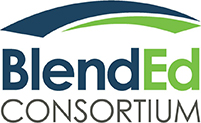Case Studies in Medicine

This semester-long course uses medical case studies as vehicles for studying the anatomy and physiology of the human body. For each unit of study, students will be responsible for researching an aspect of the body system in question and for putting together a video presentation to educate the other members of the class. These presentations, along with some additional research, will be used by students to make a diagnosis and treatment plan relative to the case study in question. Through this process, students will apply the general knowledge they have gained to a specific medical problem. Students will be expected to conduct independent research to produce their presentations in addition to working collaboratively on case study diagnosis. Weekly zoom sessions will be for short presentations, Q&A and case study discussions. At the end of the course, students will have a basic working knowledge of the major systems of the human body and how they work together to keep us healthy.
Online Meetings: The entire class will meet via Zoom once per week in the evening. Generally, this is scheduled on a Monday, Tuesday or Wednesday at around 7:30 or 8:00 p.m. These meetings will run for 1 hour during which the instructor will answer student questions, students will make short presentations and the case study will be discussed. As these meetings are critical for keeping the class connected and updated, any interested student should be able to commit to this requirement. On occasion, a virtual meeting may be scheduled to accommodate a guest speaker in the medical field. Zoom sessions may also be scheduled directly with the instructor by an individual student or small student group for purposes of tutorial assistance or general Q&A.
F2F Meetings: There will be 5 face-to-face (F2F) meetings scheduled during the course. The dates of these meetings depend on the availability of medical professionals in the Bay Area and so will be firmed up as the start of the course nears. All F2F events will take place on Saturday mornings between the hours of 9 – 12, not including travel time to and from the destination. Of the 5 scheduled events, students will be required to attend a minimum of 3, though students will definitely benefit from attending them all. This allows for illness and other scheduling conflicts that may arise. Students are responsible for their own transportation. As these events are central to the course, any interested student should be able to keep Saturday mornings relatively open from January to May.
Prerequisites: Two years of high school science.
About the Instructor
 Justin Culley – The Branson School
Justin Culley – The Branson School
We all have a human body and Justin feels it is each person’s responsibility to learn about this marvelous machine that takes us from birth to death. Justin enjoys learning about the anatomy and physiology of the human body and connecting this knowledge to a greater understanding of how to live a healthy, long life. Justin is the Director of Educational Technology at The Branson School. Prior to that, he taught chemistry, biology, forensic science and human anatomy and physiology for many years in Hawaii. Justin earned his bachelor’s degree at Northland College in Chemistry and Biology and has a masters in Teaching and Learning with Technology. When not engaged in his primary duties, Justin loves cooking, Sci-Fi and entomology.
Student Testimonials
I loved the topic matter. At the beginning I was very apprehensive, but by the last couple of weeks I was completely enthralled by the course and medical material. It actually caused me to apply pre-med to a couple of colleges which I previously would not have done.
I really liked the way each module/unit was split up so that each student got a specific aspect of the case study to research, and how that topic varied from anatomy to disorders and everything in between. I liked that each time we started a new case study, each student would get a different type of subtopic to research, so you weren’t only learning about anatomical structure the whole semester or only learning about treatments for disease.
I really enjoyed the F2F meetings. The hands-on activities were engaging, and it was cool being able to ask real doctors about their jobs. Justin did a great job stringing together memorable experiences that were both fun and enhanced my learning in the course.



